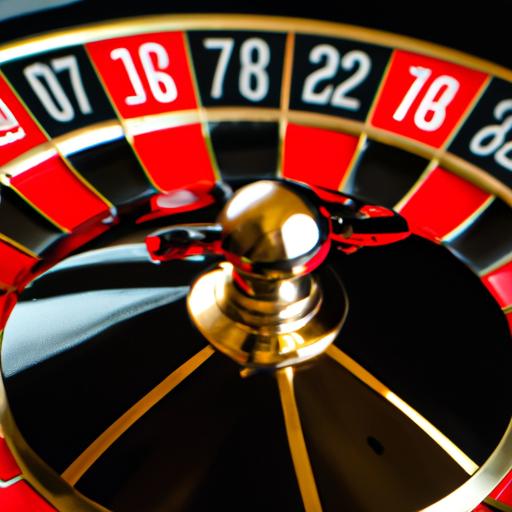Most Prominent Wagering Systems Are The Martingale
As a gambler, you know that the goal is to win big and minimize losses. That’s why wagering systems play a crucial role in your betting strategy. These systems are designed to help you make the most out of your bets and increase your chances of winning. One of the most prominent wagering systems is the Martingale system.
The Martingale system is a popular choice for many gamblers, both novice, and experienced. It is a simple and easy-to-understand system that requires you to double your bet after every loss. The idea is that eventually, you will win, and the winnings will cover all previous losses. However, the effectiveness and drawbacks of the Martingale system are subject to debate.
In this article, I will explore the Martingale system in-depth, discuss its variations, real-life examples, criticisms, and controversies. By the end of this article, you will have a better understanding of the Martingale system and its place in the world of gambling. Let’s dive in.
History and Concept of the Martingale System

Origin and Development of the System
The Martingale system’s roots can be traced back to 18th-century France, where it was used in a popular game called “coin-tossing.” The system was named after John Henry Martingale, an owner of a casino in London who popularized it in the 19th century.
Basic Principle of Doubling Bets after Each Loss
The Martingale system is a negative progression betting system that requires you to double your bet after every loss. For example, if you start with a $10 bet and lose, you double your bet to $20 on the next round. If you lose again, you double your bet to $40, and so on. The idea is that eventually, you will win, and the winnings will cover all previous losses, plus a profit equal to your initial bet.
Pros and Cons of Using the System
The Martingale system’s biggest advantage is its simplicity. It is easy to understand and implement, making it a popular choice for novice gamblers. Additionally, the system can be used in various games, including roulette, blackjack, and baccarat.
However, the Martingale system’s drawbacks are significant. One of the biggest problems is the risk of losing a significant amount of money in a short period. If you hit a losing streak, you may end up doubling your bet to an amount that exceeds the table limit or your bankroll. Additionally, the Martingale system assumes that you have an unlimited bankroll and that the odds of winning and losing are equal, which is not always the case.
In conclusion, while the Martingale system has its advantages, it is not a foolproof strategy and should be used with caution. In the next section, I will discuss the variations of the Martingale system.
Variations of the Martingale System

The Martingale system has several variations that have been developed over time, each with its unique approach to the betting strategy. Here are some of the most popular variations of the Martingale system:
Reverse Martingale or Paroli System
The Reverse Martingale system, also known as the Paroli system, is the exact opposite of the traditional Martingale system. In this system, you increase your bet after every win instead of after every loss. The idea is that you take advantage of winning streaks and maximize your profits while minimizing your losses.
Grand Martingale System
The Grand Martingale system is a more aggressive version of the traditional Martingale system. In this system, you not only double your bet after every loss but also add an additional amount to your bet. The idea is that you recoup your losses faster and potentially make more profit when you win.
Labouchere System
The Labouchere system, also known as the cancellation system, is a more complex version of the Martingale system. In this system, you start by writing down a sequence of numbers that represent your desired winnings. You then bet the sum of the first and last number in the sequence. If you win, you cross out those two numbers. If you lose, you add the amount of your bet to the end of the sequence. The goal is to cross out all the numbers in the sequence and win the desired amount.
It’s important to note that while these variations of the Martingale system may seem promising, they also come with their own set of risks and drawbacks. It’s crucial to weigh the pros and cons of each system and choose the one that best fits your betting style and goals.
Real-Life Examples of Using the Martingale System
The Martingale system has been around for centuries, and over time, many gamblers have used it to try and win big. Let’s take a look at some real-life examples of how the Martingale system has been used in different games and settings.
Success Stories of Using the System in Different Games and Settings
One of the most famous success stories of the Martingale system comes from Charles Wells, who was able to break the bank at the Monte Carlo Casino in 1891. He used the Martingale system to win millions of francs over the course of several days, and his story has become legendary in the gambling world.
In addition to the classic game of roulette, the Martingale system has also been used successfully in other games, such as blackjack, baccarat, and even sports betting. Some gamblers have reported using the system to win consistently over a long period of time, although these reports are often met with skepticism from critics of the system.
Failures and Losses Attributed to the System
Of course, not all attempts to use the Martingale system have been successful. In fact, many gamblers have lost significant amounts of money while using the system. One of the most famous examples of a Martingale failure comes from the 1915 Monte Carlo Casino incident, where a group of gamblers lost millions of francs while trying to use the system.
Other players have reported losing large sums of money while using the Martingale system in various games. Some critics of the system argue that it is inherently flawed, as it relies on the assumption that a player will eventually win, which is not always the case.
Analysis of the Results and Lessons Learned
Despite the mixed results of using the Martingale system, there are some lessons that can be learned from both the successes and failures of those who have used it in the past. For example, many successful Martingale players have emphasized the importance of setting strict win and loss limits, as well as being disciplined enough to stick to those limits.
On the other hand, those who have lost significant amounts of money while using the Martingale system often cite the danger of chasing losses and failing to recognize when it is time to walk away. Ultimately, the effectiveness of the Martingale system depends on a combination of luck, discipline, and careful planning.
Criticisms and Controversies Surrounding the Martingale System
The Martingale system has been the subject of debate among gamblers, mathematicians, and statisticians. While some swear by its effectiveness, others are critical of the system’s flaws. Let’s take a closer look at the criticisms and controversies surrounding the Martingale system.
Criticisms from Mathematical and Statistical Perspectives
Mathematicians and statisticians have long been skeptical of the Martingale system’s effectiveness. One of the primary criticisms is that the system assumes that the player has an unlimited bankroll and can continue to double their bets indefinitely. In reality, most players have a finite bankroll, and doubling their bets after every loss can quickly deplete their funds.
Another criticism is that the Martingale system does not take into account the house edge, which is the advantage that the casino has over the player. No matter how many times a player doubles their bet, the house edge remains the same, making it almost impossible to win in the long run.
Criticisms from Practical and Ethical Perspectives
In addition to mathematical and statistical criticisms, the Martingale system has also been criticized from practical and ethical perspectives. One common criticism is that the system encourages players to chase their losses and bet more than they can afford. This can lead to problem gambling and financial ruin.
Furthermore, some argue that the Martingale system is unethical because it relies on the player’s ability to outlast the house. While it may work for a short time, the system is ultimately flawed because the house will always have the advantage.
Responses and Counterarguments from Supporters of the System
Despite the criticisms and controversies surrounding the Martingale system, many gamblers still swear by its effectiveness. Supporters of the system argue that it can work if used correctly and with discipline. They also argue that the Martingale system is not intended to be a long-term strategy but rather a short-term method to increase the chances of winning.
In conclusion, the Martingale system has its fair share of criticisms and controversies. While it may work in the short term, it is ultimately a flawed system that does not take into account the realities of gambling. As a responsible gambler, it is essential to understand the risks and limitations of wagering systems and to gamble responsibly.
Conclusion
In conclusion, the Martingale system is a prominent wagering system used by many gamblers. It is a simple and easy-to-understand system that requires you to double your bet after every loss. While it has its benefits, the effectiveness of the Martingale system is subject to debate.
We explored the history and concept of the Martingale system, its variations, real-life examples, criticisms, and controversies. We also discussed the importance of having a sound betting strategy that incorporates wagering systems.
It is worth noting that no wagering system can guarantee a win. Gambling is a game of chance, and the outcome is unpredictable. However, by using a wagering system like the Martingale system, you can increase your chances of winning and minimize losses.
Remember, responsible gambling is key. Set a budget, stick to it, and gamble for fun, not as a source of income. Thank you for reading, and I hope you found this article informative. Good luck at the tables!